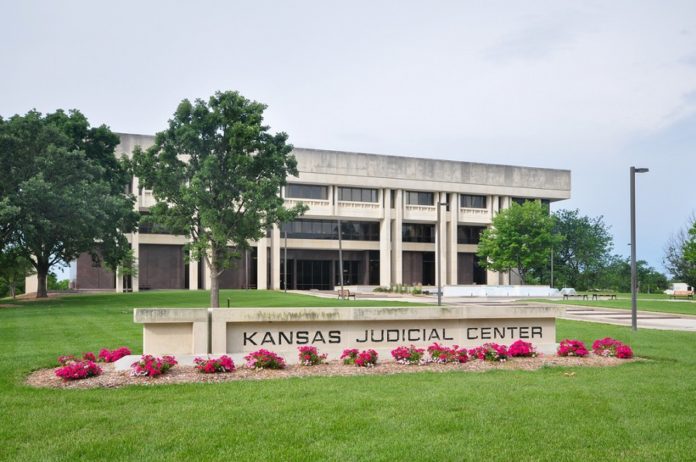The state’s leading group against abortion rights is battling to keep two judges off the state Supreme Court, arguing they’re too extreme and will be influenced by their political views.
Kansans for Life is opposing Appeals Court Judge Melissa Standridge and Shawnee County Judge Evelyn Wilson when a nominating commission meets Thursday and Friday to interview Supreme Court candidates.
Standridge and Wilson are among 20 candidates seeking the seat on the Supreme Court that came open with the retirement of Lee Johnson.
Kansans for Life is opposing Standridge because she sided with an appeals court ruling that found the right to an abortion was enshrined in the state constitution.
The court deadlock at 7-7, leaving the lower court decision in place. Ultimately, the state Supreme Court found the right to an abortion was protected by the state Constitution.
Meanwhile, KFL also criticized contributions Wilson’s husband made to Laura Kelly when she ran for governor and as a state senator.
Kelly is a supporter of abortion rights and will get to choose from among the three candidates that the nominating commission recommends.
“Kansans deserve an unbiased and objective Supreme Court which will fairly interpret the law as it is written without imposing political views,” said Jeanne Gawdun, KFL’s governmental affairs director.
“Unfortunately, both Melissa Standridge and Evelyn Wilson have a track record supporting pro-abortion policies and politicians.”
Standridge declined comment through a court spokeswoman. Wilson also declined comment.
Wilson’s husband contributed $3,000 to Kelly’s gubernatorial campaign in 2017 and 2018, campaign finance record show. He also gave to her Senate campaign with $1,000 contributions in 2016, 2015 and 2012.
KFL’s campaign against the two judges comes as the debate over abortion gradually amps up following last spring’s Supreme Court ruling that found the right to an abortion is protected by the state constitution.
The court’s decision has refocused efforts among conservative lawmakers to eliminate the nominating process that has been used to pick Supreme Court justices.
The Legislature next year is likely to consider a constitutional amendment that would allow the Senate to confirm judicial appointments.
Lawmakers are also expected to consider a constitutional amendment to ensure that abortion is not a protected right in the constitution.
Currently, a nine-member nominating commission, made up of five lawyers and four nonlawyers, recommends three candidates to the governor who picks one for the Supreme Court.
Conservative critics say the process has produced activist judges, leading to overreaching decisions on abortion and school funding, among others.
They also say the process is undemocratic because it’s controlled by lawyers who are elected to the panel by their peers.
Supporters of the process say it’s a clean way to pick judges that keeps politics out of the judiciary and is transparent.
However, this year will be the first time when the commission will vote publicly on who it recommends to the governor.
Supporters also say the current system results in better judges getting named to the bench. If the public doesn’t like a judge, it can vote them out during a retention election.
Standridge has been on the Kansas Court of Appeals since 2008. She served as counsel for Magistrate Judge David Waxse in the U.S. District Court of Kansas.
She also worked for Shook, Hardy & Bacon. Before joining the law firm in 1995, she worked two years as chambers counsel for Judge Elmo Hunter with the U.S. District Court for the Western District of Missouri.
She received a bachelor’s in business administration from the University of Kansas and her law degree from the University of Missouri-Kansas City School of Law.
Wilson is the chief judge for the 3rd Judicial Circuit, which covers Shawnee County. She was appointed to the bench in 2004.
She spent 19 years in private practice, including time as a partner in Wright, Henson, Sebelius Clark and Baker.
Her area of practice focused on personal injury, divorce, workers compensation and administrative law. She also represented the Kansas Real Estate Commission as disciplinary counsel.
She has undergraduate degrees in business and economics from Bethany College and a law degree from Washburn University.
















